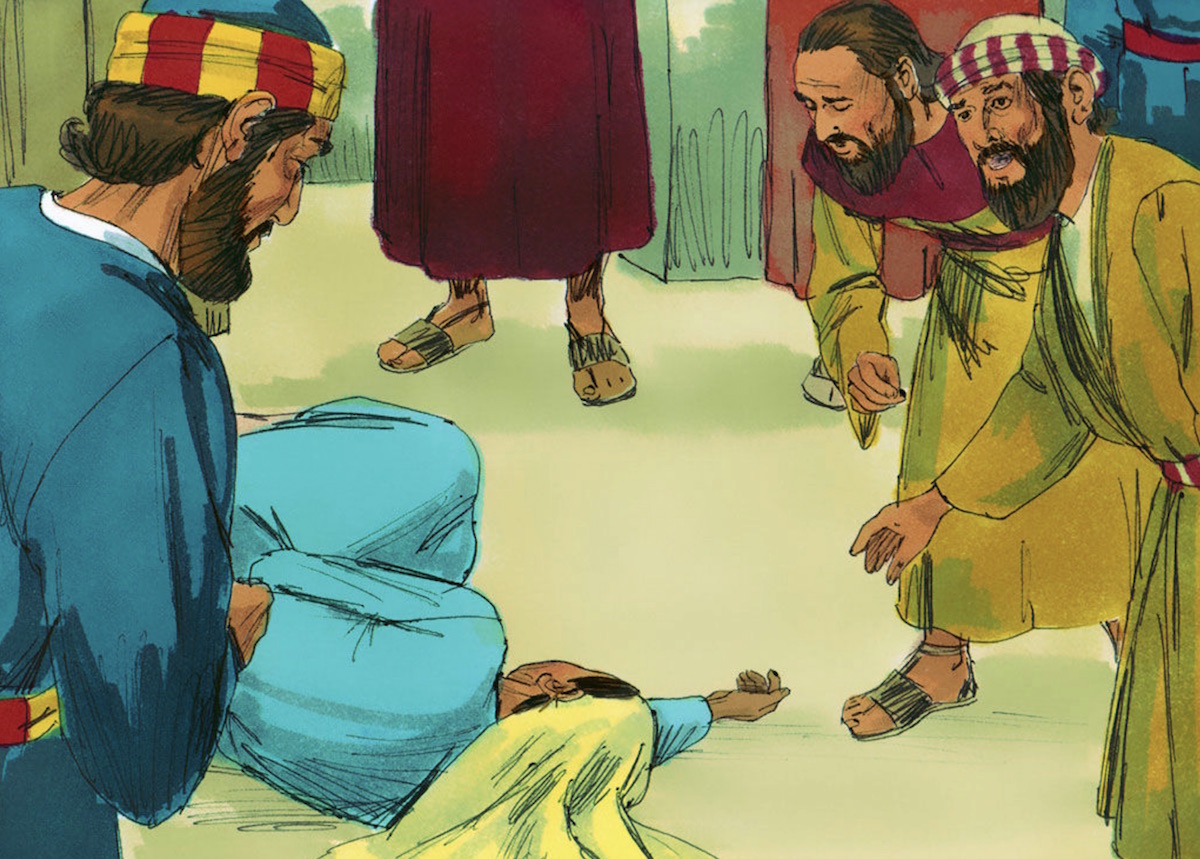📦 Free Delivery for Orders over £25
📞 Call Us On (0)333 123 0880

Sometimes you come to passages in the Bible that seem strange and counter intuitive, even to a seasoned believer. You finish reading and think: “Whoa?!—what’s that all about?”
That’s the feeling you get after reading the story of Ananias and Sapphire in Acts chapter 5. It follows a run of stories that leave you buoyed up and rejoicing: The Spirit is given, the apostles defend their faith boldly and intelligently in front of hostile authorities; the church is growing like crazy; and believers are being generous and caring and loving. And then BAM! There’s a dead couple lying on the floor.
The husband and wife had sold a field and given the money to the church; but, unlike the others described in Chapter 4, they kept part of the money back for themselves. When confronted about this by Peter, Ananias dramatically drops dead. A few minutes later, his wife shows up, and the same thing happens. It’s a “Whoa?!” moment. Dr. R. Albert Mohler explains what's going on:
“Peter clearly teaches that Ananias’ problem was not that he only gave part of the proceeds. As Peter says, “While it remained unsold, did it not remain your own? And after it was sold, was it not at your disposal?” Peter affirms that Ananias has every right to decide what is wisest to do with his money. Ananias’ problem is that he and his wife have lied about the fact that they are keeping back part of the money for themselves (v 8) … worse, they lied to God.”
The story is a powerful reminder to believers that God is a God of truth. In order to look good in front of others, the couple had lied. But their sin was not just lying, it was hypocrisy, and a betrayal of the values of the Christian community.
Certainly, we would want to impress on children of any age in church the importance of truth, generosity and the dangers of hypocrisy. But I personally would not use this story to teach children about this. Here’s why.
Younger children are very concrete thinkers. It is only as they grow into maturity in their thinking that they start to understand more abstract ideas. And with this story in particular, there is a real danger that, no matter how carefully you explain the meaning, they will walk away with the wrong thought: “God will kill me if you do not put all my money in the collection”
We need to exercise caution in how we reveal and explain the truth to children
We want to be impressing on young children the great truths about the character of God: that he loves us, that he is holy, that he is in charge, that he is a judge, that he is thoroughly and wonderfully good. This story illustrates in a graphic and powerful way one aspect of his character and nature—that he is holy, and a judge who demands holiness from his rescued people. I think you can teach any part of the Bible to children, so long as they have a solid grounding and a framework of who God is. But many other passages in scripture show God as holy and a judge and do not carry with them the associated possibility of serious misunderstanding.
Please note: I am not ashamed of this story. It is in God’s word and it is there to teach truth. But we need to exercise caution in how we reveal and explain that truth to children. By the same token, I would hesitate to teach the end of the book of Judges, and think seriously about how I handled some other stories in the Bible with children. If my aim is to teach a truth about the character of God, God has given us a Bible that is rich in possibilities: I can choose from a huge variety of passages about his holiness, justice and truthfulness. And I will select a passage that works best for the age of the children in front of me, and how much they already know about our wonderful Lord and Father.
In Acts 1-12 For You, Dr. R. Albert Mohler unpacks this thrilling, era-beginning, church-birthing part of Scripture. It is available now.